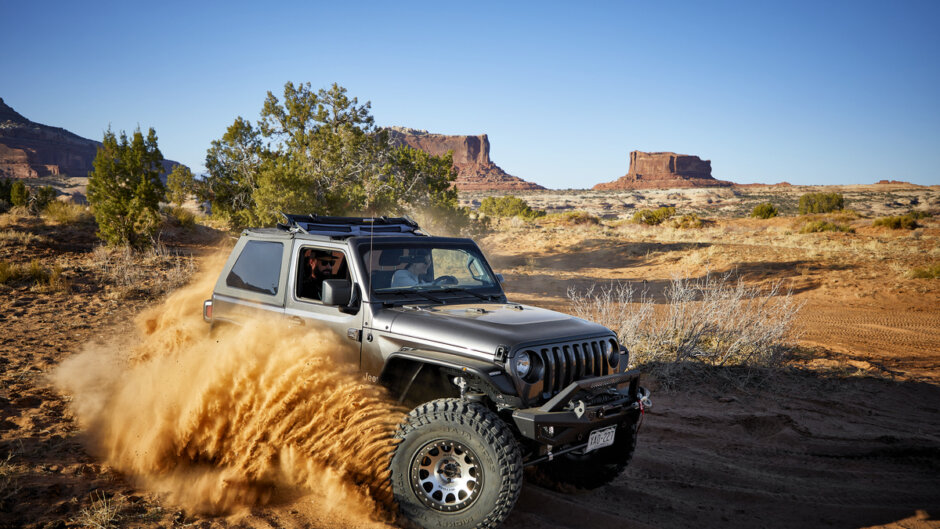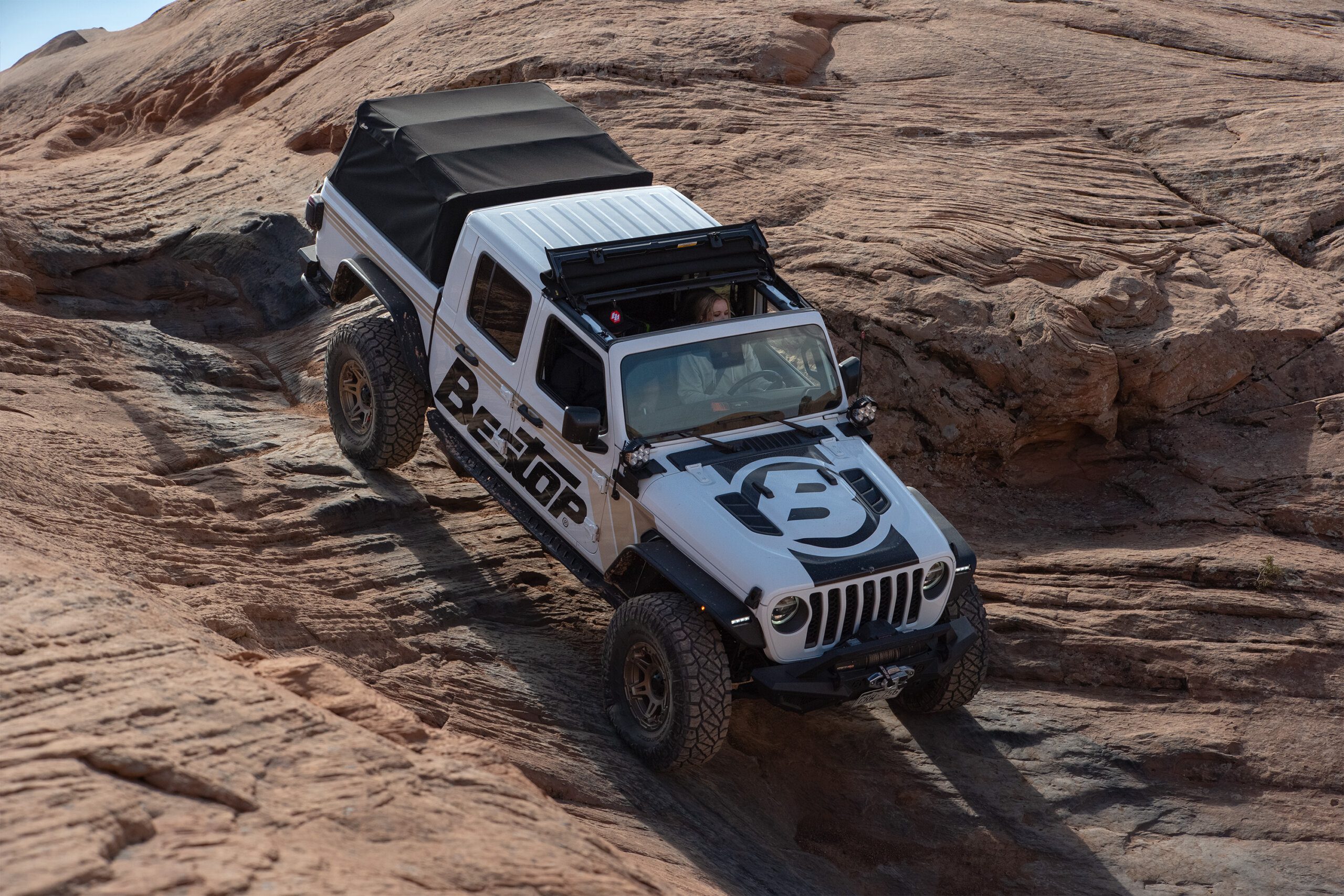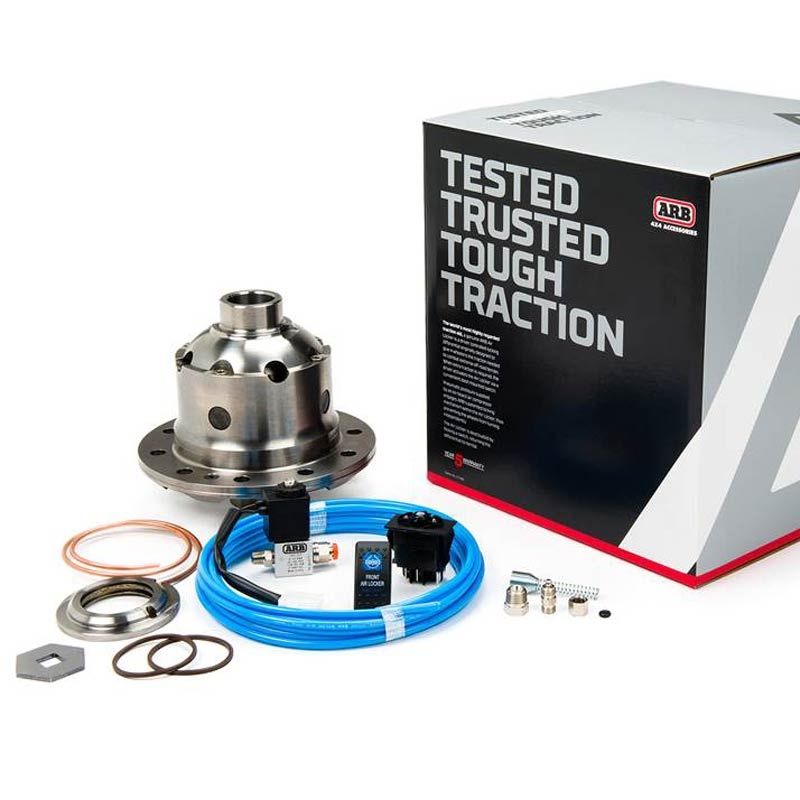
Once you’ve equipped your Jeep with one of Bestop’s rugged and versatile tops, it’s time to hit the trails. But is your rig ready to tackle the toughest terrain? When you’re ready to level-up your off-road adventures, it may be time to upgrade your Jeep with a locking differential. When it comes to lockers, ARB is king. Let’s dive deep into what a locking differential does, the advantages they offer for 4WD travel, and how ARB’s lockers are a step above the rest.
What Does a Differential Do?
Differentials are crucial components in the drivetrain of any vehicle, especially four-wheel drives (4x4s) like Jeeps. In essence, a differential is a set of gears that allows the wheels to rotate at different speeds while receiving power from the engine. This is particularly important when a vehicle turns, as the outer wheels need to travel a greater distance than the inner wheels. Without a differential, the tires would skid and the drivetrain would experience excessive wear.
In 4x4s, there are typically three differentials: one at the front, one at the rear, and sometimes a center differential that manages the power distribution between the front and rear axles. The front and rear differentials allow the left and right wheels to rotate at different speeds, which is necessary for smooth and efficient cornering.

Differential Lockers: Concept and Benefits
Differential lockers, or simply “lockers,” are devices that lock the differential gears together, forcing the wheels on an axle to turn at the same speed regardless of traction conditions. This feature is particularly advantageous in off-road situations where one or more wheels may lose traction. Some advantages of differential lockers:
Improved Traction: Lockers provide maximum traction by ensuring that power is distributed equally to both wheels on an axle, preventing one wheel from spinning freely when it loses contact with the ground.
Enhanced Off-Road Capability: In challenging terrains such as mud, snow, or rocky surfaces, lockers enable 4x4s to maintain forward momentum and prevent getting stuck.
Increased Control: By locking the differential, drivers gain better control over their vehicle in difficult conditions, making it easier to navigate through obstacles.

It’s important to remember that there can be some potential drawbacks to installing and using a differential locker as well:
Handling Issues: On high-traction surfaces like pavement, locked differentials can make steering difficult and may cause tire wear due to the inability of the wheels to rotate at different speeds during turns.
Increased Stress on Drivetrain: Constant use of lockers can put additional strain on the drivetrain components, potentially leading to increased maintenance needs.
Complexity and Cost: Installing lockers can be complex and expensive, especially if aftermarket modifications are required.
ARB Lockers: A Closer Look
One of the most reputable names in the differential locker market is ARB, an Australian company known for its robust and reliable air lockers. ARB Air Lockers operate by using compressed air to lock the differential gears, providing the benefits of a fully locked differential on demand.

ARB air lockers feature on-demand engagement. They can be engaged or disengaged with the push of a button from the driver’s seat, offering flexibility and convenience. Built with high-quality materials, ARB lockers are designed to withstand the harshest off-road conditions. And, ARB offers lockers for a wide range of 4×4 models, including various Jeep models, ensuring a perfect fit and optimized performance.
ARB’s reputation for durability and performance makes its lockers a preferred choice among off-road enthusiasts. The ability to control the lockers from the cabin allows drivers to adapt quickly to changing terrains, enhancing both safety and off-road capability. Additionally, ARB provides comprehensive installation kits and excellent customer support, making the process of upgrading your 4×4 straightforward.

Does Your Jeep Need Lockers?
Whether or not your Jeep needs lockers depends on how you plan to use it. Here are some considerations to help you decide:
Off-Road Usage
If you frequently take your Jeep off-road, lockers can significantly improve your vehicle’s capability. In situations where traction is compromised, such as rock crawling, deep mud, or snow, lockers can make the difference between getting through an obstacle and getting stuck.
Daily Driving
For Jeeps that spend most of their time on paved roads, the benefits of lockers may not outweigh the potential drawbacks. Locked differentials can cause handling issues and increased tire wear on high-traction surfaces, making them less ideal for daily driving.
Cost vs. Benefit
Lockers represent a significant investment. Consider whether the performance gains in off-road conditions justify the cost of installation and potential increase in maintenance. If you are an avid off-roader who tackles extreme terrains, the investment is likely worthwhile. For occasional off-roaders, the benefits might not justify the expense.
Alternative Solutions
For those who need occasional extra traction but do not want the complexity of full lockers, limited-slip differentials (LSDs) or automatic lockers might be viable alternatives. These provide some of the benefits of full lockers without the need for manual engagement and with less impact on on-road handling.

Differential lockers can transform a Jeep’s off-road performance, providing unparalleled traction and control in challenging conditions. While they offer significant advantages for off-road enthusiasts, they also come with potential drawbacks that should be carefully considered. ARB’s air lockers stand out for their reliability, durability, and ease of use, making them a top choice for those serious about off-roading.
Ultimately, the decision to install lockers in your Jeep depends on your specific needs and how you use your vehicle. By weighing the pros and cons and considering alternatives, you can make an informed decision that enhances your driving experience both on and off the road.
Images: ARB, Bestop











